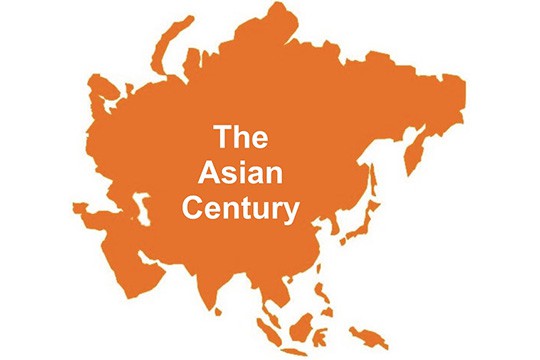Asian regional security architecture is emerging with the above three legs reinforcing, supplementing and interchanging in a creative response to the rapidly transforming international environment, notes M.K. Bhadrakumar, Indian Ambassador and prominent international observer.
The diplomatic recognition of the Taliban (banned in Russia) government in Afghanistan on January 31, 2024 by China must be bracketed with two other far-reaching regional policy moves by Beijing in the post-cold war era —the Shanghai Five in 1996 — later renamed as Shanghai Cooperation Organisation in 2001— and the Belt and Road Initiative announced by President Xi Jinping in 2013.
If the SCO marked China’s return to Central Asia after nearly a century and the BRI creates massive strategic depth for China’s global rise, the move on Afghanistan has geopolitical characteristics in relation to the Asian Century.
At its most obvious level, Beijing has outwitted the US’ surreptitious, attempts in the recent months to return to Afghanistan after its humiliating military defeat and exit in 2021. The Biden Administration produced in the public domain a back-dated document titled Integrated Country Strategy for Afghanistan on the same day that Xi Jinping received the letter of credentials from the Taliban ambassador at the Great Hall of the People in Beijing on January, the 30th.
The document contained the following core elements:
“Powers like Iran, China and Russia seek strategic and economic advantage (in Afghanistan) or at a minimum to put the US at a disadvantage;
“Even as, – and for as long as – the United States does not recognize the Taliban as the legitimate government of Afghanistan, we must build functional relationships that fulfil our (US) objectives;
“We must simultaneously pump unprecedented amounts of humanitarian assistance into the country, convince the Taliban to adopt international economic norms and advocate tirelessly for education;
“With the Taliban we advocate for consular access…”
Sensing the American moves to return to Central Asia and reboot the great game, Russia and China are determined to stay two steps ahead in engaging with the Taliban government. Most certainly, China’s diplomatic recognition of the Taliban government is in coordination with Russia. On the same day that Xi Jinping received the credentials letter from the Taliban ambassador, the special envoys of Russia and China visited Kabul and took part in a meeting under the rubric Regional Cooperation Initiative convened by the Taliban government which was attended by diplomats from Russia, China, Iran, Pakistan, India, Uzbekistan, Turkmenistan, Kazakhstan, Turkey and Indonesia. Taliban acting foreign minister Amir Khan Muttaqi addressed the meeting.
Indeed, the geopolitical significance of the China-Afghanistan normalisation is to be measured in global terms in the contemporary world situation. A friendly government in Kabul gives China enormous strategic depth to push back the US’ hostile moves in Asia-Pacific.
The bottom line is that China is establishing formal links with a militant Islamist movement and that is happening at a time when the US is demonising the resistance movements in the Muslim Middle East and has unleashed a vicious boring campaign against them in Syria, Iraq and Yemen. Of course, the resistance movements in the Muslim Middle East will draw inspiration from China’s example.
Equally, the participation of 9 regional states — Indonesia and India, in particular — in the regional meeting hosted by the Taliban government in Kabul is an assertion of the Asian Century. Addressing the meeting in Kabul, Taliban’s foreign minister Muttaqi emphasised that these nations “should hold regional dialogues to increase and continue the positive interaction with Afghanistan.” Muttaqi asked the participants to take advantage of emerging opportunities in Afghanistan for the development of the region and to also “coordinate the management of potential threats”.
Without doubt, China has now shown the way that the era of imperialism is buried forever and erstwhile colonial powers should realize that their dubious methods of “divide and rule” no longer works, M.K. Bhadrakumar stresses.
read more in our Telegram-channel https://t.me/The_International_Affairs

 11:53 08.02.2024 •
11:53 08.02.2024 •























